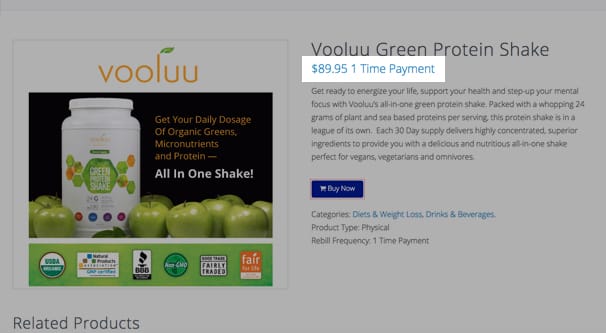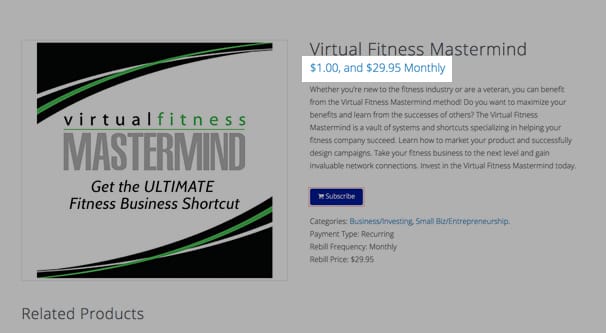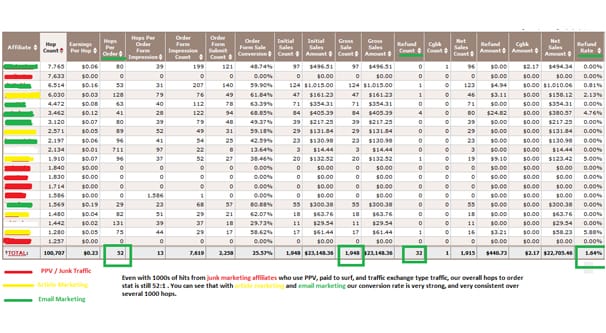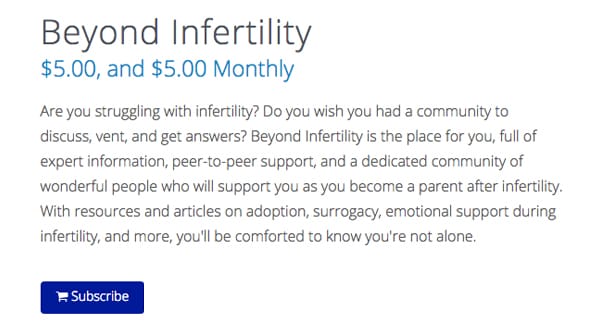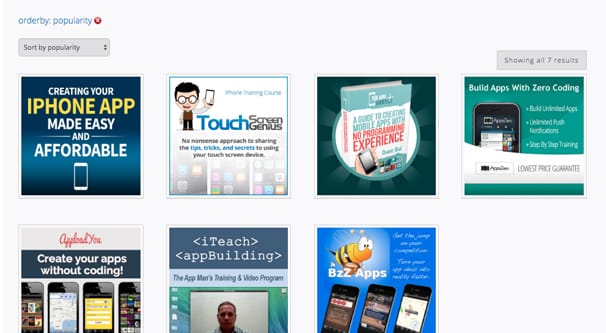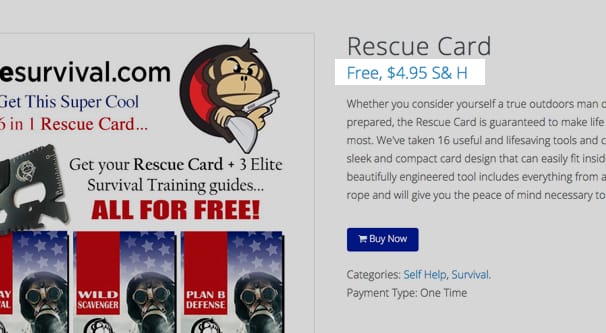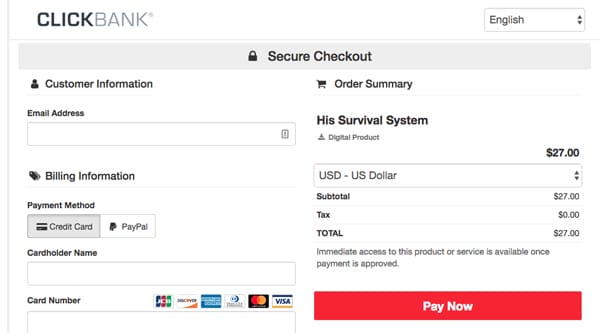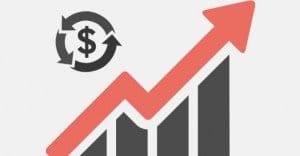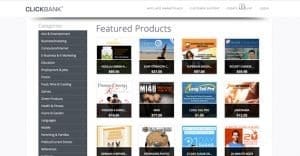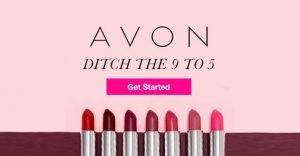High vs Low Priced Clickbank Products: Which Earn More?
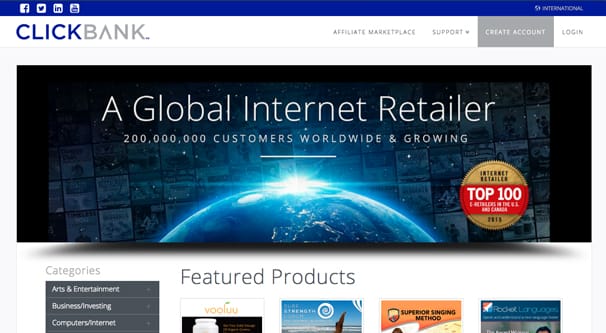
When you’re trying to sell affiliate products through Clickbank, you have a few decisions to make. The most impactful of all of them is the selection of what products you want to sell. Do you go for high commission products or lower priced, lower commission products? Let’s talk about it.
Price Vs. Commission
The first thing you need to be aware of is the difference between the price of the product and the commission for the sale. If you’re selling a product that has a sale price of $100, and you get a 75% commissions, that means every sale is making you $75. On the other hand, if you’re selling a product that sells for $100 and you have a 50% commission, you’re only making $50 per sale.
This might seem obvious, but when the numbers are smaller and closer together, it’s easier to slip and not notice which ones are really the better deals. A higher commission is better all else being equal, but all else is not always equal.
When you’re comparing products you might want to sell, I recommend making a spreadsheet and doing some testing. The first three columns of your spreadsheet should be the product name, the sale price of the product, and the commission for the product, so you can see directly how much you actually make per sale, rather than how much the product sells for.
Conversion Rates
The second factor you need to keep in mind is the conversion rate for the product. This will, of course, vary depending on your ability to sell the product to your audience. This is where your testing comes in. If you have the luxury of setting up a small test affiliate site for individual products, you can run tests in a relatively static environment. On the other hand, you won’t have a high volume, because you won’t have an established audience.
It’s generally best to find items that at least fit your niche. If you’re running a site with a bunch of FOREX affiliate products, you’ll have a lot of FOREX content and can attract a FOREX-interested audience. Testing another FOREX product is easy; testing some kind of new laundry appliance or something probably isn’t.
Conversion rates are important, so testing in as controlled an environment as possible is extremely valuable. Which of these products would you choose?
- A product that has a sale price of $100, a commission of 70%, and a conversion rate that gets you 5 sales per month.
- A product that has a sale price of $20, a commission of 80%, and a conversion rate that gets you 30 sales per month.
The first product will get you $70 per sale and a total of five sales per month, which results in $350 per month. The second product will get you $16 per sale, but with 30 sales per month, you end up making $480 per month.
This is why pricing can be deceptive. The smaller product ends up making you more money in the long run.
Of course, if you can boost the conversion rate of the first product, each additional conversion is worth more. On the other hand, the same actions might be able to boost the conversion rate of both products, so you never know which one is going to perform better.
If you’re filling out your spreadsheet, this is where you want to add a column for the number of conversions you get in an average week or month, and a column with the average total you make in a month. This will give you a good at-a-glance reading of which products work better for your site.
Recurring Payments
Another factor you might consider with affiliate offers through Clickbank is recurring commissions. With normal affiliate products, you get paid once and you’re done with that customer. Often times the customer isn’t in the market for more similar products, and while you might have related products you can sell to them, you won’t sell any individual product repeatedly.
This tends to be worse with the higher priced products, because a higher priced product is generally designed to last longer than a lower priced product. If someone buys a computer through your affiliate link, that computer is likely to last them for several years, if not longer. You won’t be selling another computer to them any time soon. On the other hand, a peripheral like a computer mouse might be cheaper, but you might sell several as they wear down. That’s still a finite number of sales, though.
Recurring commissions are monthly sales that pay you each month as long as the customer is still subscribed. Subscription software often works this way and can be very lucrative. Take those two products from above, and add this third one on to it:
- A product that has a sale price of $30 per month, a commission of 50%, and a conversion rate that gets you 10 sales per month. It has recurring commissions as long as the subscriber remains subscribed.
This product will compound upon itself. Each individual sale is worth $15 to you, so with 10 sales per month, each month is $150. Except you have recurring commissions. The first month that product is getting you $150. The second month it is getting you $300. The third month it is getting you $450, and so on.
Now, there will generally be an end-of-life for the commission, and there will always be cancellations. After six months, maybe the user unsubscribes. However, even if all of the users from month 1 unsubscribe at month 6, you still have six months of compounded earnings on a rolling basis; that’s $900 a month ongoing. If you can retain subscribers longer than that, it’s even better. Even with a one-year cap on recurring subscription commissions, that’s still $1800 a month with that product, ongoing. You get more and more money with no further sales.
Recurring commissions can be extremely lucrative, but you also have to be aware of all of the factors involved. Cancellations, caps on commissions, and audience saturation are all important. Audience saturation is especially important; if you have 10,000 monthly readers and you have successfully sold to all of them, you’re basically stuck. You need to grow your audience and reach new people to keep new commissions rolling in. Of course, this is true of basically any commission-based affiliate system, so growing your site is always going to be important.
Competition
The competition for your affiliate offers is a big factor that is very hard to quantify. Every product on a site like Clickbank is going to have at least some competition. That’s simply the nature of using an affiliate marketplace.
The stronger the competition, the harder it’s going to be to get your place in the niche carved out. A larger established site is going to be able to out-spend you in advertising. They’ll have a better search engine ranking because they have an older domain, more content, and more readers. If they’re promoting the same offer you are, you don’t have anything unique to offer your readers, so they aren’t necessarily likely to trust you over the more established rival.
Competition doesn’t mean you have to avoid an offer; like I said, there will always be people promoting every offer you see. You just need to be able to successfully promote it to your audience.
Ease of Sales/Interest in the Products
This is a big one. It ties into your conversion rates. Some products are simply much easier to sell than others.
Think about it. It’s a lot easier to sell a Netflix streaming service than it is to sell individual DVDs, because of the breadth of experience available to a user who converts. One represents one single piece of media; one represents hundreds of thousands.
You need to think about different aspects of the product you’re going to sell. Here are some considerations:
- The price of the product. Products with a very high price require more thought before a user can convert. They also require an audience with more disposable income. It’s easier to sell a desktop stapler than it is an industrial electric stapler.
- The potential audience for the product. Some products are generically useful to basically everyone, while others are more extremely specialized. You can target just about any business, large or small, to sell a subscription to MailChimp. On the other hand, you have to target a specific type of business if you’re selling an enterprise-grade ERP system.
- The age of life for the product. Some products are consumable. Others decay quickly. Still others are long-term investments. Selling a box of chocolates is a product users can come back to and order more of. Selling a year’s supply of shipped chocolates can get annual recurring sales, but some users might not keep it up. Selling a chocolate-making kit means users can make chocolate themselves, so you only get to sell to them once.
- The research necessary to decide to convert. Some kinds of products don’t require much effort to sell. Everyone knows their t-shirt size and can easily impulse buy a shirt. On the other hand, people will spend weeks, months, or even years researching which car they want to buy when they go to buy.
All of this needs to be balanced against the size of the commission you receive. You can make an extremely good living selling yachts, even if you only sell one or two a year; a commission that pays you $100,000 each means you can spend a lot of time on one single sale. On the other hand, you can make even more money with even less effort if you have a large enough audience for a lot of small, recurring commissions. It’s all a balancing act.
Making the Decision
Honestly, I don’t think you should be asking yourself whether you want to sell cheap products or expensive products. I think you should be broadening your scope and selling both. Your audience is going to be made up of a lot of different people who have interests throughout your range of content.
Let’s say you’re a site focused on watersports of all kinds. You’ll find plenty of people in your audience who are parents who just want a simple inflatable raft for their kids at pool parties. You’ll sell a lot of tubes and boogie boards. You might also have a section on your site dedicated to surfers who will buy expensive custom surfboards and all the assorted accessories. You can have a section for kayaks, and sell not just the boats, but the tools necessary to maintain and transport them.
You can also expand into higher end watersports. You can sell jet-skis and speedboats. You can even have a section for high-end watercraft, and even if you don’t sell them, the content will bring people into your site. Maybe you write an article about yachts and never sell a single one, but the people who come in end up buying a more reasonably priced boat that still earns you a $10,000 commission. You never know!
High priced, high commission items are big ticket sellers, and selling a few a year can keep you in the money. The interest comes and goes, however, and you never know if you’re going to make those sales. On the other hand, you might not make much with selling scuba goggles, but the interest is much broader and you’ll sell a lot more.
Having a wide range of low priced products gives you a solid foundation of relatively stable income. Having high ticket items allows you to spike up and live comfortably, and/or have plenty of money to reinvest in your site. It’s better to have both rather than focus on one or the other.
 ContentPowered.com
ContentPowered.com
